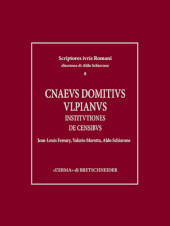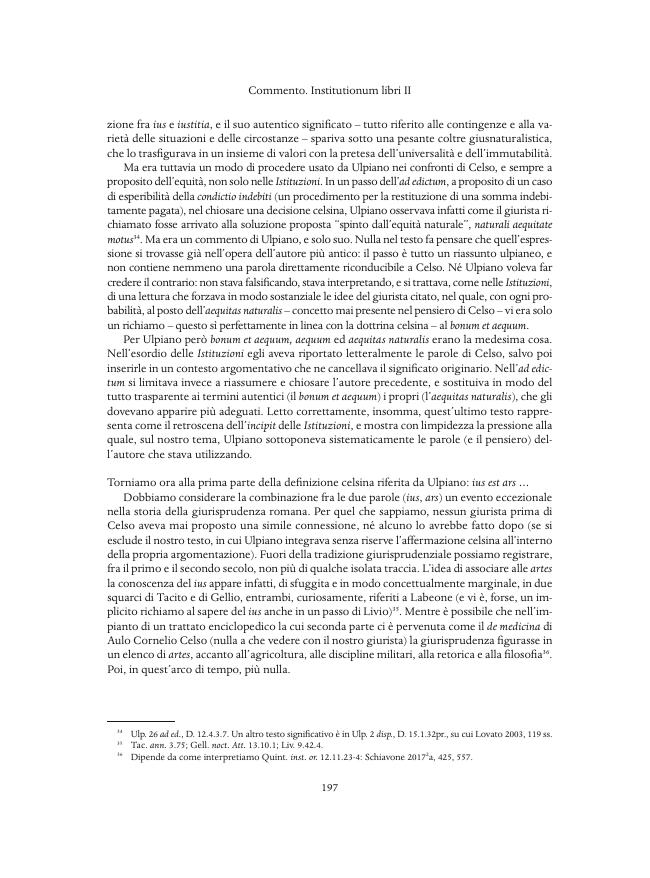Institutiones : De censibus
vii, 401 p.
Includes bibliographical references (pages 309-357).
Questo volume è il primo della collana SIR dedicato all'opera di Domizio Ulpiano, il giurista più utilizzato nei Digesta giustinianei, che riportano circa 3000 frammenti tratti dai suoi lavori. Oltre che dedicarsi agli studi, Ulpiano ricoprì anche incarichi politici prestigiosi, e fu, per circa un anno, fra il 222 e il 223 fino alla sua uccisione, il personaggio forse più potente dell'impero e certo il più vicino al giovane imperatore, Severo Alessandro, di cui era una specie di tutore. La sua morte, in una congiura di pretoriani, segna simbolicamente la fine del grande pensiero giuridico romano.
In questo volume vengono presentati due suoi scritti: le Institutiones e il De censibus: il primo soprattutto individua un momento cruciale della biografia intellettuale del suo autore e del suo programma politico-culturale: la costruzione di un modello di legalità in cui potesse riconoscersi l'impero universale, e che potesse fare da argine nei confronti di una deriva dispotico-militare di cui venivano intravisti tutti i pericoli.
This volume is the first in the SIR series dedicated to the work of Domitius Ulpianus, the most widely used jurist in the Digesta Iustiniani, which contains about 3000 fragments taken from his works. In addition to his studies, Ulpianus also held prestigious political positions, and was, for about a year, between 222 and 223 until his murder, perhaps the most powerful character of the empire and certainly the closest to the young emperor, Severus Alexander, of whom he was a kind of guardian. His death, in a conspiracy of praetorians, symbolically marks the end of the great Roman legal thought.
This volume presents two of his works: the Institutiones and the De Censibus. The first identifies a crucial moment in the intellectual biography of its author and his political- cultural program: the construction of a model of legality in which the universal empire could be recognized, and which could act as an embankment against a despotic-military drift of which all dangers were glimpsed.
Original texts in Latin; introductions and critical matter in Italian.
Includes introductions and commentaries by the eds.
-
Información
ISBN: 9788891321916
COLECCIÓN
MATERIAS



